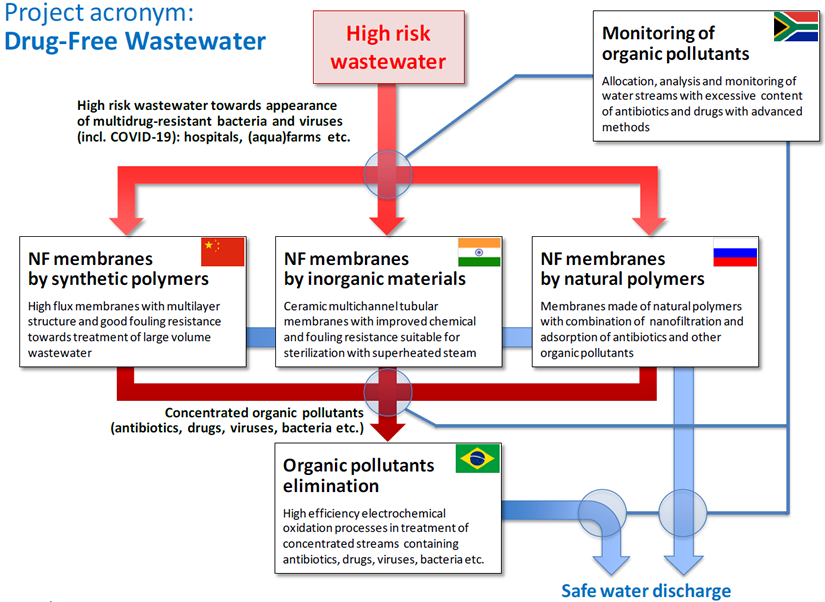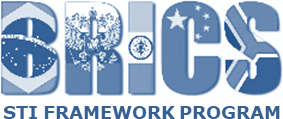Monitoring and removal of antibiotics from wastewater by membrane separation
(Drug-Free Wastewater)
The COVID-19 epidemic has tragically demonstrated the vulnerability of global, open society to sudden emergence of new viruses and diseases. However, World Health Organization and expert community are raising the alarm on inevitable appearance of multi-drug resistant bacteria and viruses as a result of the widespread use of antibiotics in medicine and agriculture. Due to poor absorption, part of antibiotics consumed is excreted to the environment in an unchanged form. The accumulation of antibiotics in environment leads to the emergence of new resistant strains, while the use of new generation of drugs just triggers the appearance of multi-drugs resistant strains.
This problem has become more critical with COVID-19 epidemic since the treatment protocol includes macrolide and beta-lactam antibiotics to prevent secondary bacterial pneumonia. According to forecasts, the global antibiotic consumption will increase 67% by 2030, and for BRICS countries – 99%. Thus, the appropriate monitoring and effective treatment of drugs-contained wastewater become increasingly urgent nowadays to mitigate the long-term treats to health care.
To address these challenges, the goal of this project is to identify, concentrate and eliminate these antibiotics via a membrane-based hybrid process. The project includes: (i) the identification of high-risk water sources by monitoring antibiotics and pathological microorganisms in municipal and surface waters (South Africa), (ii) treatment of identified water sources by membrane separation for isolation of antibiotics and pathological microorganisms to concentrated solution by using nanofiltration membranes with different functionalities (China, India and Russia); (iii) electrochemical oxidation to eliminate these chemicals (Brazil).
The proposed project will be accomplished by the expanded existing BRICS consortium working closely on the development of membrane-based methods to improve the recovery of pure water and valuable products from the waste.

Development of membrane-based methods to improve the recovery of pure water and valuable products from the waste
(From waste to resource)
Five different membrane technologies will be systematically investigated in our five BRICS research teams. To integrate the various technologies created from out BRICS partners, we will sort the technologies into basically three categories:
(1) technologies mainly as pre-treatment; inorganic ultrafiltration and nanofiltration membranes from India team will provide a solid pre-treatment processes for all potential downstream technologies; the membrane distillation from the Chinese team will be suitable for cases where low-grade heat or solar power is abundant; pre-concentration and clarification of the feed streams will facilitate the process efficiency of the whole system.
(2) technologies which could be used for both pre-treatment and downstream purification/ extraction processes; This includes the electrodialysis or reactive electrodialysis technologies from Brazil team; the ion exchange membrane technologies from the South Africa team will provide a key solution to the streams where anion nutrients are highly concentrated; both technologies could also be applied as the final purification and extraction steps for targeted matters. The membrane extraction technology could be utilized to pre-separation of metal ions and to obtain pure metal ions.
(3) downstream purification/extraction processes; the membrane crystallization technology from the Russian team is the final step to reach a complete separation of water and inorganic chemicals. This will allow a zero-liquid discharge process to close the tap of the earth’s water.

